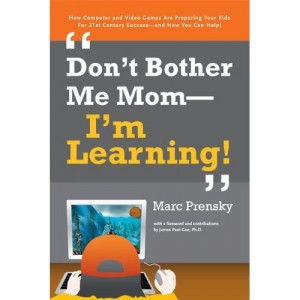by Annie | Nov 5, 2010 | Game Design
How does virtuality differ from reality? In reality, we may or may not remember everything that happens. In the virtual world, we can track, record, and measure every single action, choice, and event and thus reward players appropriately to effectively manipulate future actions, choices, and events. In his TED talk, Tom Chatfield outlines 7 ways games engage the brain, which can be applied to every field from education to the business world. Take a...
by Annie | Aug 10, 2010 | Game Design
Technology is great, but nothing can top the power of the human mind. Given the proper conditions, humans can learn just about anything and tackle just about any problem. Take proteins, for example. Proteins are made up of extremely complex configurations of amino acids that fold in many different ways. Given a large amount of processing power, computers can figure out how protein folding works. Given a game like Foldit and a dedicated following of players, humans can outperform the computers, which begs the question – what else is possible through games? Imagine an arsenal of science, math, literature, history, and psychology games that leverage the power of the human mind to tackle the world’s biggest problems. The cure for cancer could be lurking in the next great game. The possibilities, my friend, are...

by Annie | Jul 20, 2010 | Game Design
Imagine you’re a parent (this is less of a stretch for those of you who already have children). Your child is growing up in a world in which people use cell phones to check email and rely on GPS narration to guide them through unfamiliar territory. And of course, the ubiquity of computer and video games is unavoidable. So, do you let your kids play them? Let’s face it. The game industry is growing. Computer and video games are published every day. Story lines are becoming more complicated, and gameplay mechanics are changing. Often, toddlers as young as 2 years old play computer games or iPhone games on a regular basis. Isn’t this harmful? According to Marc Prensky, the contrary is true. Kids can actually learn more positive and useful things from computer and video games than from school, depending on how teachers and parents moderate kids’ gameplay experiences. Think about how much attention and energy kids devote to computer and video games. Now compare that to the attention and energy they put forth in the classroom. I can assure you that there are as many kids catching Z’s in the classroom as there were back in the “old days” before classrooms had interactive white boards and computers. But why? What’s the draw of video games? For one, kids, just like adults, love challenges. Give a kid an overly easy assignment, and you’ll catch them throwing paper airplanes soon after, counting down the minutes until recess. Give a kid a challenging assignment with the proper tools and scaffolding to help them complete it, and you get a focused and...

